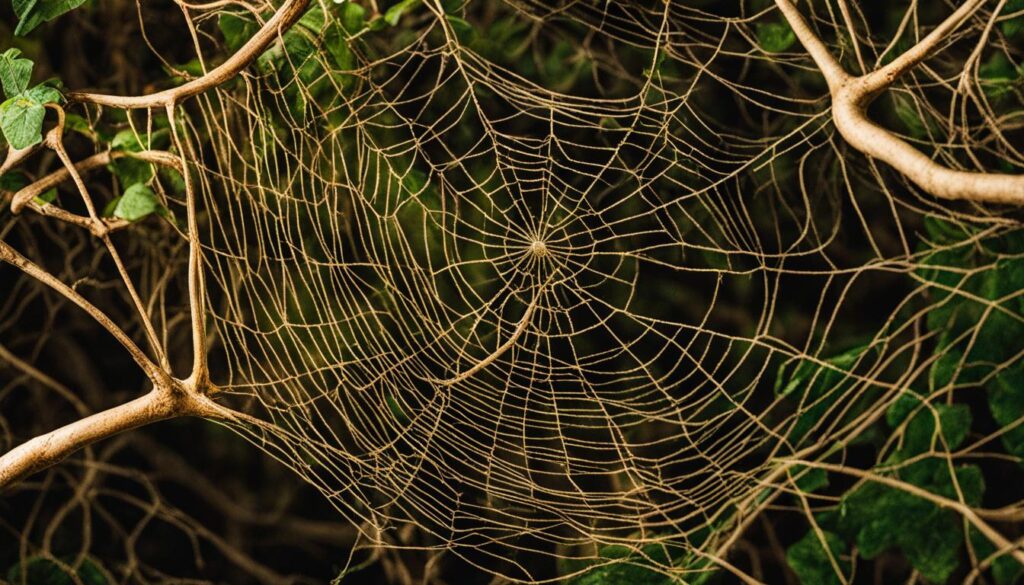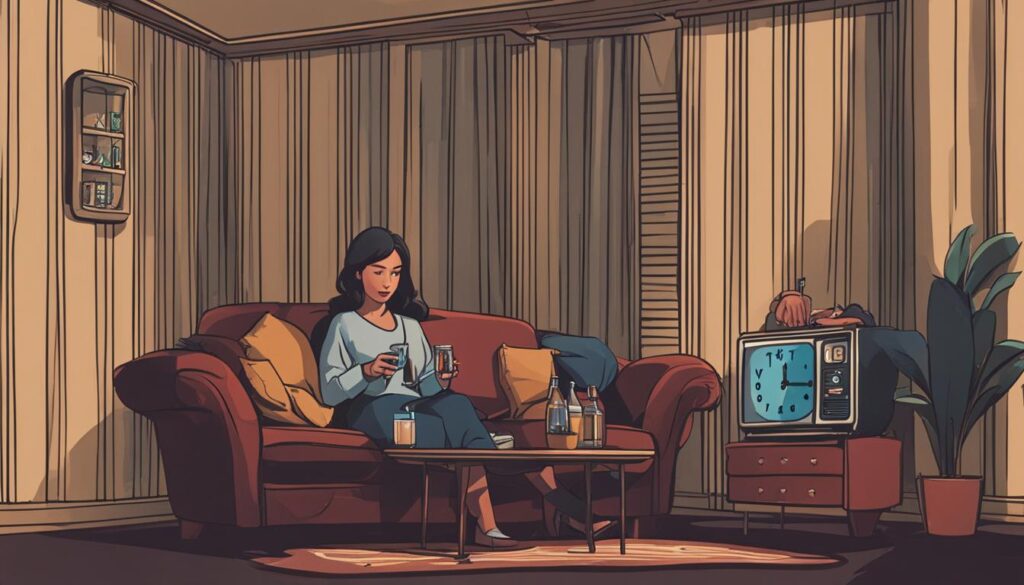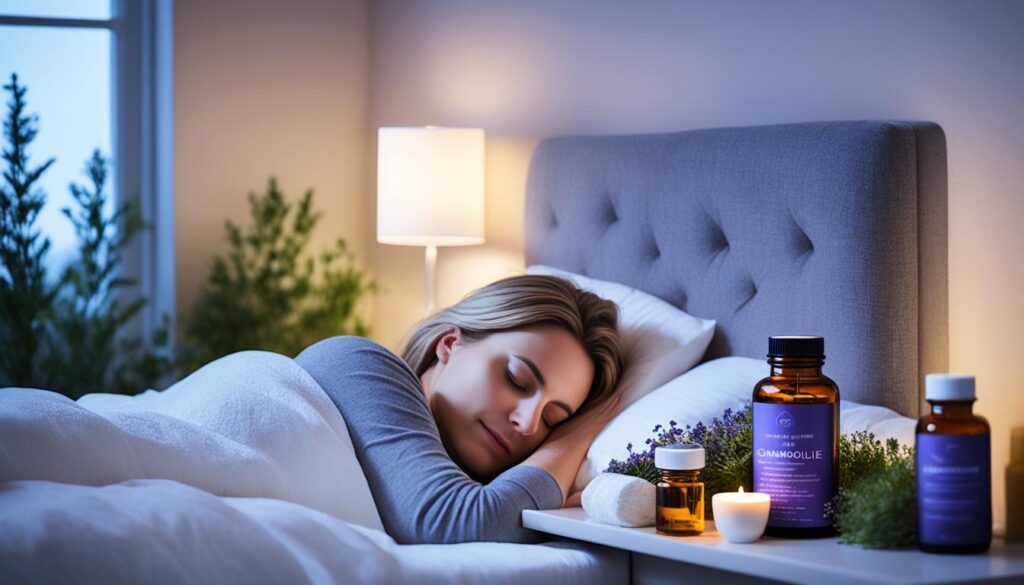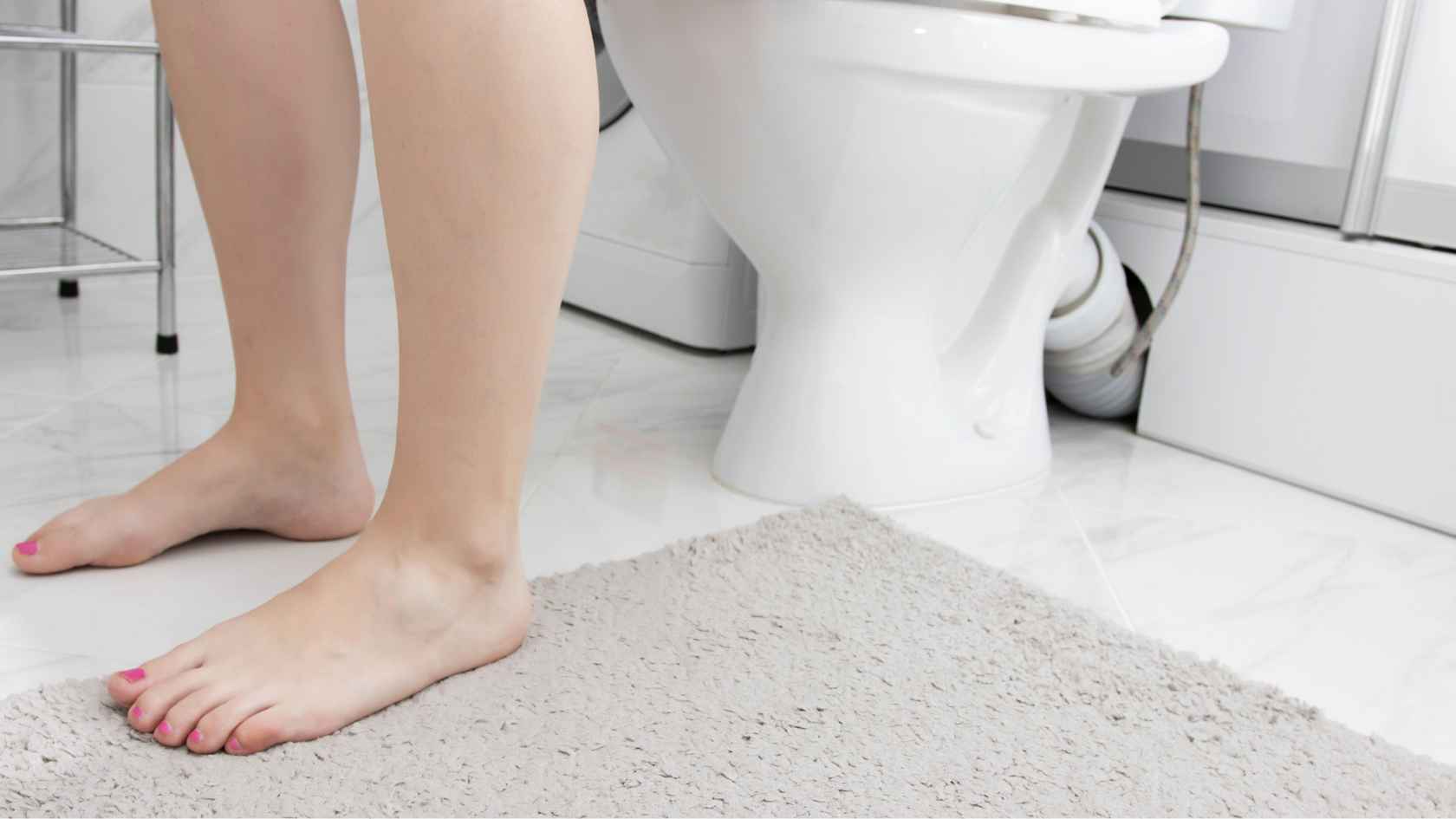Do you want to know how to treat nocturia naturally? Did you know that over 40% of adults over the age of 50 experience nocturia, a condition characterized by frequent nighttime urination? If you find yourself waking up multiple times during the night to use the bathroom, you’re not alone. Nocturia can disrupt your sleep and leave you feeling tired and groggy during the day. Fortunately, there are natural ways to treat nocturia and regain restful nights without relying on medication.
Key Takeaways:
- Over 40% of adults over 50 experience nocturia.
- Nocturia disrupts sleep and can leave you feeling tired.
- Natural treatment options can help manage nocturia without medication.
- Addressing the underlying causes of nocturia is essential for effective treatment.
- Lifestyle changes, natural remedies, and self-care techniques can all play a role in managing nocturia naturally.
Understanding Nocturia and Its Natural Treatment
Understanding the causes and symptoms of nocturia is crucial for finding effective natural treatment options. Nocturia can be caused by factors such as menopausal hormone shifts and age-related changes in sleep patterns. By gaining a deeper understanding of this condition, you can make informed decisions about the most suitable holistic treatment approaches.
Nocturia is a common condition characterized by the need to urinate frequently during the night. It can significantly disrupt sleep and negatively impact overall quality of life. While medications are available for managing nocturia, many individuals prefer to explore natural treatment options to minimize the use of pharmaceuticals and their potential side effects.
One key aspect of effectively treating nocturia is understanding its underlying causes. Menopausal hormone shifts, for example, can disrupt sleep quality and lead to nocturia symptoms.
When estrogen levels decline during menopause, it can result in hot flashes and night sweats, which can disrupt sleep and contribute to nighttime urination. Similarly, age-related changes in sleep patterns, such as reduced sleep efficiency and increased arousal, can contribute to the development of nocturia.
Gaining insight into the root causes of nocturia enables individuals to tailor their treatment strategies for optimal results. By addressing the specific factors contributing to nocturia, it becomes possible to develop a holistic approach that promotes restful sleep and minimizes nighttime urination.
“Understanding the causes and symptoms of nocturia is crucial for finding effective natural treatment options. By gaining a deeper understanding of this condition, you can make informed decisions about the most suitable holistic treatment approaches.”
Identifying the Root Causes of Nocturia
To effectively treat nocturia, it is essential to identify the root causes contributing to this condition. Several factors can contribute to nocturia, including menopausal hormone shifts and age-related changes in sleep patterns.
Menopausal Hormone Shifts and Sleep Quality
During menopause, hormonal changes can disrupt sleep patterns and lead to nocturia symptoms. The fluctuation in estrogen levels can cause night sweats and hot flashes, which can interrupt sleep and increase the need for nighttime urination. By addressing these hormone shifts, it is possible to improve sleep quality and reduce nocturia episodes.
Age-Related Changes in Sleep Patterns
As we age, natural changes occur in our sleep patterns, including an increase in the frequency of nighttime awakenings. These awakenings can result in more frequent bathroom trips during the night. Understanding and addressing these age-related changes in sleep patterns can help reduce nocturia symptoms and improve overall sleep quality.

The Role of Estrogen in Sleep and Nocturia
Estrogen, a hormone that affects various body systems, plays a significant role in sleep quality and the development of nocturia. As estrogen levels decline, it can lead to hot flashes and night sweats, which can disrupt sleep and contribute to nocturia symptoms. Exploring the relationship between estrogen and sleep can provide valuable insights into natural treatment options for nocturia.
The Impact of Lifestyle on Nocturia
Lifestyle factors play a crucial role in the frequency and severity of nocturia, a condition characterized by frequent nighttime urination. By addressing these lifestyle factors, individuals can effectively manage their nocturia symptoms naturally. In this section, we will explore two key aspects of lifestyle that can impact nocturia:
Incontinence and Urinary Tract Health
Incontinence, which refers to the involuntary leakage of urine, can contribute to increased nighttime urination. It is essential to maintain good urinary tract health to prevent or manage incontinence. Regular exercise targeting pelvic floor muscles, such as Kegel exercises, can help strengthen the muscles that control urination.
Additionally, maintaining a healthy weight and avoiding bladder irritants, such as caffeine and alcohol, can improve urinary tract health and reduce nocturia episodes.
Dietary Habits and Fluid Management
Dietary habits and fluid management can directly impact bladder function and nocturia symptoms. Avoiding excessive fluid intake, especially in the evening hours, can help minimize nighttime urination. It is recommended to limit caffeine and alcohol consumption, as they can act as diuretics and increase urine production.
On the other hand, maintaining a balanced diet with adequate fibre and hydration can promote overall urinary health. Understanding and adjusting dietary habits and fluid intake can positively influence nocturia management.
By addressing the impact of lifestyle factors such as incontinence, urinary tract health, dietary habits, and fluid management, individuals can significantly reduce the frequency and severity of nocturia episodes, leading to improved sleep quality and overall well-being.

Natural Remedies for Nocturia
Natural remedies offer a holistic approach to managing nocturia. By incorporating these remedies into your routine, you can minimize nighttime urination and improve sleep quality. Let’s explore two key natural remedies: herbal solutions and relief strategies.
Herbal Solutions for Nocturia
Certain herbs with diuretic properties can help reduce nighttime urination. These herbs promote the elimination of excess fluids from the body, reducing the frequency of trips to the bathroom during the night. Incorporating herbal remedies into your daily routine may provide relief from nocturia symptoms and improve overall sleep quality.

Nocturia Relief Strategies
In addition to herbal solutions, incorporating relief strategies can also contribute to managing nocturia naturally. Consider implementing the following strategies to improve sleep quality and minimize nocturia symptoms:
- Practice relaxation techniques before bedtime, such as deep breathing exercises or meditation. These techniques can help calm the mind and promote more restful sleep.
- Maintain good sleep hygiene by establishing a consistent sleep schedule, creating a comfortable sleep environment, and avoiding stimulating activities before bed.
- Limit fluid intake in the evening, especially caffeinated and alcoholic beverages that can increase urine production.
- Engage in regular physical activity to promote overall health and support better sleep patterns.
By implementing these relief strategies, you can optimize your sleep and manage nocturia symptoms naturally.
How to Treat Nocturia Naturally
In this section, we will discuss various ways to treat nocturia naturally. By integrating a holistic approach that combines lifestyle modifications, natural remedies, and self-care techniques, individuals can effectively manage their nocturia symptoms and experience more restful nights. Implementing these strategies can lead to improved sleep quality and a reduction in nighttime urination episodes.

When it comes to treating nocturia naturally, a multifaceted approach is key. By incorporating lifestyle modifications into your daily routine, such as limiting evening fluid intake and practising good sleep hygiene, you can promote better bladder function and minimize nighttime urination episodes. Making these small changes can have a significant impact on your overall sleep quality.
“Integrating natural remedies, such as herbal solutions with diuretic properties, can further aid in reducing nighttime urination frequency. Additionally, implementing self-care techniques, like bladder training and pelvic floor exercises, can help improve bladder control and minimize the urgency to urinate during the night.”
It’s important to note that treating nocturia naturally may require patience and consistency. Results may vary for each individual, and it’s essential to consult with a healthcare professional before starting any new treatment regimen. By taking a proactive approach, you can effectively manage your nocturia symptoms and restore a peaceful night’s sleep.
| Natural Treatment Strategies | Benefits |
|---|---|
| Limit evening fluid intake | Reduces nighttime urination frequency |
| Practice good sleep hygiene | Promotes better sleep quality |
| Herbal solutions with diuretic properties | Reduces nighttime urination frequency |
| Bladder training and pelvic floor exercises | Improves bladder control and minimizes urgency |
Managing Nocturia with Lifestyle Changes
Lifestyle changes play a significant role in managing nocturia naturally. By making simple adjustments, individuals can minimize the frequency and severity of nighttime urination episodes.
Elevating Legs to Reduce Nighttime Urination
Elevating the legs during the day is a practical lifestyle change that can help reduce fluid accumulation in the lower extremities. This, in turn, can minimize the need to urinate frequently at night. By elevating the legs for short periods throughout the day, such as by using a footstool or propping them up on pillows, individuals can promote better fluid balance and improve their sleep quality.
Leveraging Cooling Bedding for Better Sleep
Another lifestyle change that can benefit individuals with nocturia is using cooling bedding materials. Night sweats, often associated with hormonal changes or other factors contributing to nocturia, can disrupt sleep and worsen nocturia symptoms. By choosing bedding made from breathable fabrics that help regulate body temperature, individuals can alleviate night sweats and promote a more comfortable sleep environment.
| Lifestyle Change | Benefits |
|---|---|
| Elevating Legs | Reduces fluid accumulation in lower extremities |
| Leveraging Cooling Bedding | Regulates body temperature, alleviates night sweats |
Implementing these lifestyle changes can make a significant difference in managing nocturia naturally. By elevating the legs and using cooling bedding, individuals can improve their sleep quality and reduce the frequency of nighttime urination, leading to a more restful and rejuvenating night’s sleep.
Holistic Treatment Options for Nocturia
Holistic treatment options offer a comprehensive and integrated approach to managing nocturia. By considering factors such as hormone balance, sleep hygiene, lifestyle modifications, and natural remedies, individuals can address the root causes of nocturia and improve their overall well-being.
Exploring these holistic treatment options provides a well-rounded approach to managing and reducing nocturia symptoms.
Alternative Treatments for Nocturia
In addition to the holistic treatment options discussed earlier, there are alternative approaches that can help individuals manage nocturia naturally. These alternative treatments focus on self-care techniques and adopting specific sleeping positions to alleviate symptoms and improve the quality of sleep.
Nocturia Self-Care Techniques
Self-care techniques play a vital role in managing nocturia. By incorporating these practices into your daily routine, you can improve bladder control and reduce nighttime urination episodes. Here are some self-care techniques that may be beneficial:
- Bladder training: This technique involves gradually increasing the time between bathroom visits, helping your bladder to hold more urine and reducing the frequency of nighttime urination.
- Pelvic floor exercises: Strengthening your pelvic floor muscles through exercises such as Kegels can improve bladder control and reduce nocturia symptoms.
Best Sleeping Positions for Nocturia Management
The way you position your body during sleep can impact the pressure on your bladder and, consequently, the frequency of nighttime urination. Here are some recommended sleeping positions for managing nocturia:
- Sleeping on your side: This position can help relieve pressure on the bladder, allowing urine to flow more freely and reducing the frequency of urination.
- Elevating your upper body: By propping yourself up with pillows, you can minimize fluid accumulation around the bladder and decrease the urgency to urinate during the night.
Exploring these alternative treatments provides individuals with a range of strategies to tailor their nocturia management. By incorporating self-care techniques and adopting suitable sleeping positions, you can effectively manage and reduce the symptoms of nocturia naturally.
Nocturia Home Remedies and Self-Help Strategies
Home remedies and self-help strategies offer practical and accessible options for managing nocturia. By incorporating these remedies and strategies into your daily routine, you can take control of your nocturia symptoms and improve your sleep patterns.
Limiting Evening Fluid Intake for Nocturia Prevention
One effective self-help strategy to prevent excessive nighttime urination is to limit your evening fluid intake. Avoid consuming large amounts of liquids, especially caffeinated and alcoholic beverages, close to bedtime. This can help reduce the frequency of nocturia episodes and promote more restful sleep.
It is recommended to hydrate adequately during the day and gradually decrease fluid intake as the evening approaches. This approach allows your body to regulate fluid balance and reduce the urge to urinate frequently during the night.
Natural Sleep Aids and Their Role in Treating Nocturia
Another self-help strategy for managing nocturia is incorporating natural sleep aids into your bedtime routine. These aids can promote better sleep quality, leading to reduced nocturia episodes.
Some natural sleep aids that you can consider include:
- Valerian root: Known for its calming properties, valerian root can help improve sleep quality and reduce nocturia issues.
- Chamomile tea: Chamomile has relaxing properties and can potentially help soothe your bladder and promote better sleep.
- Magnesium: Adequate levels of magnesium in your body can contribute to better sleep quality. Consider incorporating magnesium-rich foods or supplements into your diet, following proper dosage guidance.
It’s important to note that while natural sleep aids can be beneficial, consulting with a healthcare professional is recommended, especially if you have any underlying medical conditions or if you are taking other medications.
| Nocturia Home Remedies | Benefits |
|---|---|
| Limiting evening fluid intake | Prevents excessive nighttime urination |
| Using natural sleep aids | Improves sleep quality and reduces nocturia episodes |
| Implementing relaxation techniques | Promotes overall relaxation and better sleep |
| Practicing good sleep hygiene | Establishes a conducive sleep environment and routine |
Conclusion
To effectively treat nocturia naturally, it’s important to adopt a holistic approach that targets the root causes, implements lifestyle changes, and explores natural remedies and self-help strategies. By recognizing that nocturia is a complex condition influenced by various factors, individuals can tailor their treatment plans and experience improvements in sleep quality and a reduction in symptoms.
By addressing the multifaceted nature of nocturia, individuals can make lifestyle modifications that play a significant role in managing the condition. Elevating the legs during the day helps reduce fluid accumulation, while leveraging cooling bedding materials regulates body temperature and alleviates night sweats, promoting better sleep.
Furthermore, exploring natural remedies such as herbs with diuretic properties and implementing relief strategies like relaxation techniques and proper sleep hygiene can further enhance the management of nocturia.
By embracing a holistic treatment approach that encompasses all these aspects, individuals can take control of their nocturia symptoms and achieve more peaceful and uninterrupted nights of sleep.
FAQ
How can I treat nocturia naturally?
Natural treatment of nocturia involves a holistic approach that includes lifestyle changes, herbal solutions, and self-help strategies. By addressing the root causes, individuals can manage their nocturia symptoms and improve sleep quality.
What are the natural ways to stop nocturia?
Natural remedies for nocturia include herbal solutions and relieving strategies. Certain herbs with diuretic properties can help reduce nighttime urination while implementing relaxation techniques and proper sleep hygiene can improve sleep quality and minimize nocturia symptoms.
How can I fix night urination with nocturia?
Fixing night urination with nocturia involves identifying the underlying causes and implementing holistic treatment approaches. By considering hormone balance, sleep hygiene, and lifestyle modifications, individuals can address the root causes of nocturia and reduce nighttime urination episodes.
How can I stop peeing at night naturally?
To stop peeing at night naturally, you can try implementing lifestyle changes such as elevating your legs during the day to reduce fluid accumulation in the lower extremities. Using cooling bedding materials can also help regulate body temperature and alleviate night sweats, contributing to improved sleep quality.
What is the main cause of nocturia?
Nocturia can have various causes, including menopausal hormone shifts and age-related changes in sleep patterns. By understanding the underlying factors contributing to this condition, individuals can tailor their treatment strategies accordingly.
How can I reduce frequent urination naturally in females?
Natural remedies for reducing frequent urination in females include following a healthy diet, managing fluid intake, and practising pelvic floor exercises. These strategies can help improve bladder control and reduce nighttime urination episodes.
What are the natural remedies for frequent urination in males at night?
Natural remedies for frequent urination in males at night include reducing fluid intake before bed, avoiding caffeine and alcohol, and practising bladder-relaxation techniques. These strategies can help minimize nighttime urination and improve sleep quality.
What is the best sleeping position for nocturia?
The best sleeping position for nocturia management is on your side with a pillow between your legs. This position can alleviate pressure on the bladder and reduce the frequency of nighttime urination.
How can I manage nocturia in elderly individuals?
Managing nocturia in elderly individuals involves a combination of lifestyle changes, natural remedies, and self-help techniques. Elevating the legs during the day, using cooling bedding, and practising bladder training exercises can help reduce nighttime urination episodes.
Are there any remedies for frequent urination at night?
Remedies for frequent urination at night include limiting evening fluid intake, avoiding caffeine and alcohol, and implementing relaxation techniques before bedtime. These remedies can help reduce nighttime urination and improve sleep quality.
How can I stop frequent urination naturally?
To stop frequent urination naturally, you can try lifestyle modifications such as managing fluid intake, practising bladder control techniques, and avoiding bladder irritants. These strategies can help reduce the frequency of urination during the day and night.
Is there any medication for nocturia?
While there are medications available for nocturia, natural treatment options can be explored before considering medication. It is recommended to consult with a healthcare professional for personalized advice and guidance.




